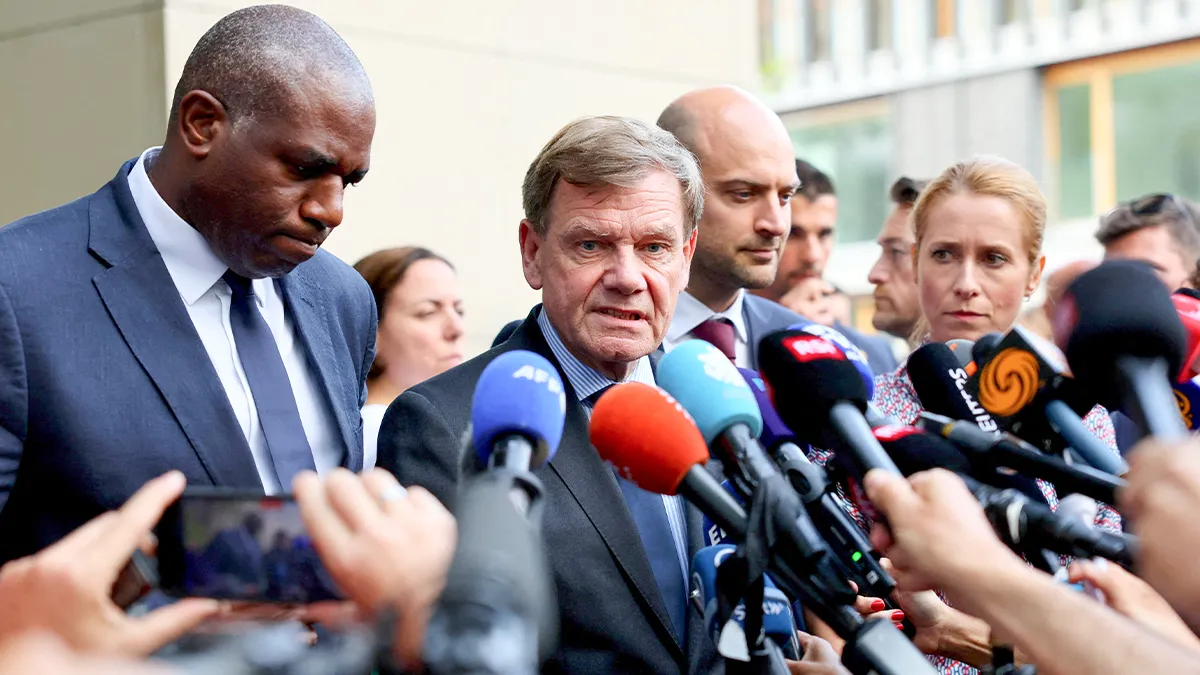Following the announcement by European leaders to meet with Iranian officials to resolve the nuclear programme issue, particularly uranium enrichment, the United Kingdom, France and Germany have initiated a 30-day process to reimpose UN sanctions, a move that is likely to increase tensions two months after Israel and the United States bombed Iran.
A senior Iranian official was quick to accuse the three European powers of undermining diplomacy and vowed that Tehran would not bow to pressure over the E3’s decision to launch the so-called ‘snapback mechanism’.
The three powers feared that otherwise they would lose the prerogative to reinstate sanctions against Tehran in mid-October that were lifted under a 2015 nuclear agreement with world powers.
French Foreign Minister Jean-Noël Barrot said the decision did not mean the end of diplomacy. His German counterpart, Johann Wadephul, urged Iran to cooperate fully with the UN nuclear watchdog and to commit to direct talks with the United States over the next month.
A senior Iranian official told Reuters that the decision was ‘illegal and regrettable,’ but left the door open for dialogue.
‘This measure is an act against diplomacy, not an opportunity for it. Diplomacy with Europe will continue,’ the official said, adding: ‘Iran will not yield under pressure.’
The UN Security Council will meet behind closed doors on Friday at the request of the E3 to discuss the measure to reimpose sanctions against the Islamic Republic, diplomats said.
Iran and the E3 have held several rounds of talks since Israel and the United States bombed its nuclear facilities in mid-June, with the aim of agreeing to postpone the reimposition mechanism. However, the E3 felt that the talks in Geneva did not show sufficient signs of Iran’s willingness to reach a new agreement.
The E3 acted on Thursday in response to allegations that Iran has violated the 2015 agreement that sought to prevent it from developing nuclear weapons capabilities in exchange for the lifting of international sanctions. The E3, along with Russia, China and the United States, was part of that agreement.
US President Donald Trump withdrew Washington from that agreement in 2018 during his first term, calling the agreement one-sided in favour of Iran, and it fell apart in the following years when Iran abandoned the limits set on its uranium enrichment.
Trump’s second administration held indirect negotiations earlier this year with Tehran before the US and Israeli attacks on Iranian nuclear facilities.
US Secretary of State Marco Rubio welcomed the E3 initiative and said Washington remained open to direct dialogue with Iran ‘in pursuit of a peaceful and lasting solution to the Iranian nuclear problem’.
An Iranian source said Tehran would do so only ‘if Washington guarantees that there will be no (military) attacks during the talks.’
The E3 said it hoped Iran would commit by the end of September to dispel concerns about its nuclear agenda enough that they could postpone concrete action.
‘The E3 is committed to using all available diplomatic tools to ensure that Iran never develops a nuclear weapon,’ including the backstop mechanism, they said in a letter sent to the UN Security Council and seen by Reuters.
‘Nevertheless, the E3’s commitment to a diplomatic solution remains firm.’
Iran has previously warned of a ‘tough response’ if sanctions are reinstated, and the Iranian official said it was reviewing its options, including withdrawal from the Nuclear Non-Proliferation Treaty.
The E3 had offered to extend the atomic energy rollback for up to six months to allow for serious negotiations if Iran restored access to UN nuclear inspectors – who would also seek accountability for Iran’s large stockpiles of enriched uranium, the status of which has been unknown since the June war – and entered into talks with the United States.
Israeli Foreign Minister Gideon Saar called the E3’s decision inevitable and said it was an ‘important step in the diplomatic campaign to counter the Iranian regime’s nuclear ambitions.’
The UN process will take 30 days before sanctions affecting Iran’s financial, banking, hydrocarbon and defence sectors are reinstated.
Russia and China, strategic allies of Iran, finalised a draft Security Council resolution on Thursday that would extend the 2015 nuclear agreement for six months and urge all parties to immediately resume negotiations.
But they have not yet called for a vote.
‘The world is at a crossroads,’ Russia’s deputy ambassador to the UN, Dmitry Polyanskiy, told reporters. ‘One option is peace, diplomacy and goodwill… Another option is hardline diplomacy.’
The spectre of new sanctions is causing frustration in Iran, where economic anxiety is mounting and political divisions are deepening, three people close to the government said.
Iranian leaders are divided over how to respond: hard-line anti-Western supporters are calling for defiance and confrontation, while moderates are advocating diplomacy.
Iran has been enriching uranium to 60% fissile purity, far short of the approximately 90% needed to make bombs, and had enough material enriched to that level, if further refined, for six nuclear weapons before Israel’s air strikes began on 13 June, according to the IAEA, the UN nuclear watchdog.
However, manufacturing a weapon would take longer, and the IAEA has said that while it cannot guarantee that Tehran’s nuclear programme is entirely peaceful, it has no credible indications of a coordinated weapons project.
The West claims that the progress of Iran’s nuclear programme goes afterlife civilian needs, while Tehran claims that it only wants nuclear energy for peaceful purposes.
Article previously published in The Arab Weekly
